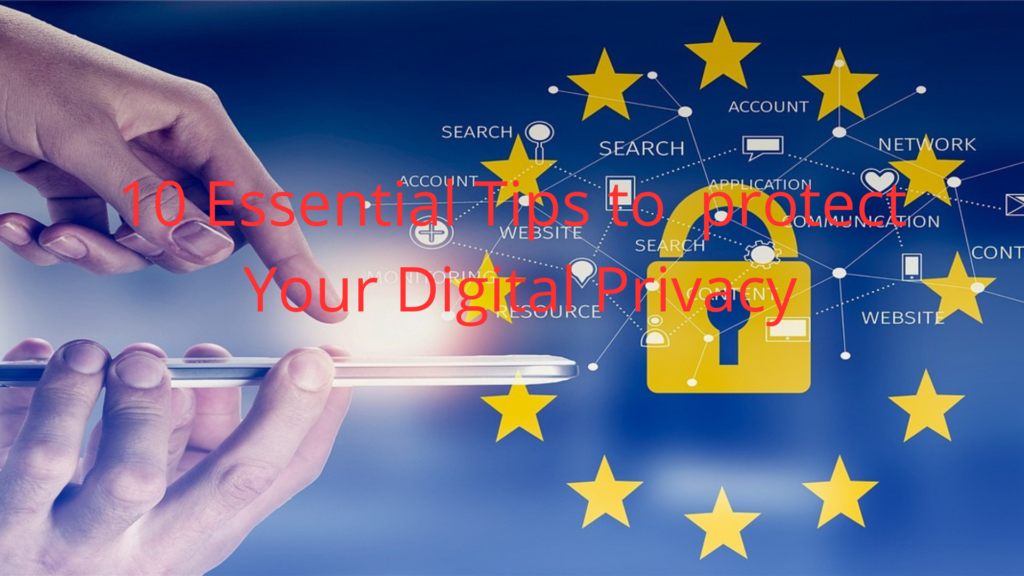
Protecting your digital privacy is crucial in today’s interconnected world. Here are 10 essential tips to help safeguard your digital privacy:
Use Strong and Unique Passwords:
- Create strong, complex passwords for your accounts, combining letters, numbers, and special characters.
- Avoid using easily guessable information like birthdays or common words.
- Use a unique password for each online account to prevent a security breach from affecting multiple accounts.
Enable Two-Factor Authentication (2FA):
- Enable 2FA whenever possible for an additional layer of security.
- This typically involves receiving a code on your phone or email that you need to enter along with your password.
Regularly Update Software and Apps:
- Keep your operating system, software, and apps up to date to patch security vulnerabilities.
- Set up automatic updates whenever possible to ensure you are using the latest, most secure versions.
Be Cautious with Personal Information:
- Avoid sharing unnecessary personal information online, especially on public forums and social media.
- Check and adjust privacy settings on social media platforms to control who can access your information.
Use a Virtual Private Network (VPN):
- Use a VPN to encrypt your internet connection and protect your online activity from prying eyes, especially when using public Wi-Fi networks.
Regularly Review App Permissions:
- Periodically review and audit the permissions granted to apps on your devices.
- Only grant necessary permissions, and be cautious about apps that request excessive access to your personal data.
Secure Your Devices:
- Use passcodes, PINs, or biometric authentication (like fingerprints or face recognition) to lock your devices.
- Enable device tracking and remote wipe features in case your device is lost or stolen.
Encrypt Your Communications:
- Use end-to-end encryption for messaging and communication apps to ensure that only the intended recipients can access your messages.
Be Skeptical of Phishing Attempts:
- Be cautious of unexpected emails, messages, or links, especially those asking for personal information.
- Verify the legitimacy of requests by contacting the organization directly through official channels.
Regularly Backup Your Data:
- Regularly backup your important data to secure locations, either offline or in the cloud.
- In case of a security incident or device loss, you can restore your information without compromising your privacy.
Remember, digital privacy is an ongoing effort. Stay informed about new threats and security measures to adapt and enhance your privacy practices over time.
